Why the FDA should quickly authorize kids’ COVID-19 vaccines
By HyunJung Kim | August 26, 2021
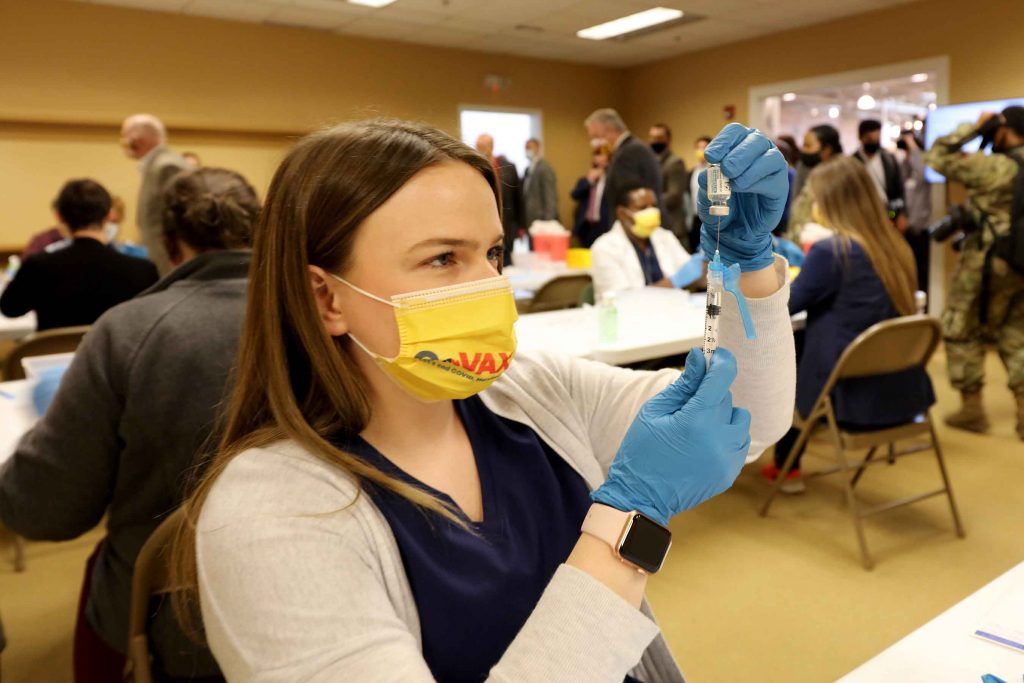 A COVID-19 vaccination site. Credit:
MDGovpics via Wikimedia Commons. CC BY 2.0.
A COVID-19 vaccination site. Credit:
MDGovpics via Wikimedia Commons. CC BY 2.0.
As the delta variant takes hold in the United States, millions of parents are anxiously waiting for COVID-19 vaccines to be approved for children under 12. Parents and experts alike are worried about how the Food and Drug Administration (FDA)’s high level of caution in authorizing these childhood vaccines could delay the start of a vaccination campaign for kids. After all, school has already started for many.
People want the safest product possible for their children, but as the FDA seeks expanded safety data for pediatric COVID-19 vaccines, experts and parents alike are asking how much data is enough, especially in the face of a highly transmissible strain of the coronavirus.
The FDA has cited concerns that the Pfizer and Moderna trials of pediatric COVID-19 vaccines were not large enough to detect rare side effects such as myocarditis, an inflammation of the heart. But should the government be paying such close attention to a rare condition at the possible expense of quicker access to pediatric vaccines at a time when the number of cases among children is shooting up?
Delta variant and the increasing need for pediatric COVID19 vaccines. For much of the pandemic, the risk of COVID-19 to children was viewed as minimal. They didn’t get sick in the same numbers as adults or as sick. It was unclear how much they contributed to transmission. Given these factors, giving kids COVID-19 vaccines hasn’t always been seen as the highest priority.
But the delta variant has made people more wary, as reports of pediatric wards filling up make the news. It is imperative for the United States to protect children who currently can’t get a COVID-19 vaccines, a group comprising some 48 million children under 12 years old, the current cutoff for vaccination. A campaign to vaccinate this group is also necessary to build and maintain herd immunity in the United States. In other words, COVID-19 vaccines for child use are a matter of public health security.
How to approve the use of COVID-19 vaccines for kids. In order to deal with the unprecedented global pandemic caused by new coronavirus, the FDA issued the first emergency use authorization for COVID-19 vaccines (Pfizer and Moderna) in December 2020. The regulator then extended the authorization for Pfizer’s vaccine in May 2021 to allow adolescent use (ages 12 to 15). Moderna also filed an emergency-use-authorization application for adolescent use in June and is waiting for the FDA green light.
It is worth noting that the emergency-use-authorization process through which the FDA first approved the COVID-19 vaccines is fundamentally a homeland security policy, first granted by the Project Bioshield Act of 2004. The process allows the government to authorize unapproved medical countermeasures or the off-label use of approved medical countermeasures in order to timely respond to a public health emergency, primarily one caused by chemical, biological, radiological, and nuclear threats. To satisfy homeland and national security needs, therefore, the issuance of emergency use authorization should meet a basic security principle: The known and potential benefits should outweigh the known and potential risks of the vaccines.
The FDA determined that the benefits of COVID-19 vaccines exceed the risks when it issued the authorizations for adolescent use as well as for adult use. It wasn’t until August 23 that the FDA finally granted a full-approval of the Pfizer vaccine for adult use (ages 16 or older). The FDA still is using an emergency use authorization to approve the COVID-19 vaccines for adolescent use; pediatric vaccines will most likely also be approved under the policy. In other words, COVID-19 vaccines for pediatric use will become available because the FDA will have determined the benefits of vaccinating children under 12 outweigh the risks, a determination some think–at least for children ages five to 11–the agency can already make.
Cautiousness is not always better than timeliness. Careful and cautious approaches to pediatric vaccine development are very important because children can respond differently to vaccines than adults. Since the delta variant has caused a surge of pediatric COVID-19 cases, however, the government’s request for bigger trials and a longer period of follow-up means the United States may miss a critical time for protecting children from the pandemic.
In July, the FDA requested vaccine makers include more pediatric participants in trials. For children under five, The Washington Post reported at the time, the FDA was expected to ask for six months of safety follow-up rather than the standard two months. At this point, vaccines for children ages five to 11 could come later in the fall, according to NPR.
That means several more months where kids risk exposure to COVID-19 and perhaps serious illness.
Since March, major vaccine makers have conducted in-depth studies and trials on pediatric vaccines using smaller doses and regimens. According to the American Academy of Pediatrics, the data already exists to authorize vaccines for children between five and 11 years old. The trials using lower doses of vaccine show promising outcomes that could help avoid unnecessary side effects in the young children. However, federal regulators are paying special attention to rare side effects such as myocarditis. According to the US Centers for Disease Control and Prevention, the 9 million teens ages 12 to 17 who had gotten the Pfizer vaccine by mid-July reported more than 9,000 side effects. Just 4 percent of these reports were of myocarditis.
AAP urges the @US_FDA to move quickly to approve a #COVID19 vaccine for younger kids as case numbers soar. In @NBCNews: @AAPPres Dr. Lee Beers: "The delta variant has created a new and pressing risk to children and adolescents across this country."https://t.co/30yvt4l2xV
— American Academy of Pediatrics (@AmerAcadPeds) August 9, 2021
The pediatrics group wrote a letter to the FDA asking for more urgency in approving pediatric vaccines. Referring to the FDA’s request that vaccine makers increase the size of clinical trials, the group wrote, “we urge FDA to carefully consider the impact of this decision on the timeline for authorizing a vaccine for this age group.” For ages five to 11, the group wrote, “the FDA should strongly consider authorizing these vaccines for children ages five to 11 years based on data from the initial enrolled cohort.” That data, according to the group, is already available.
“In our view, the rise of the delta variant changes the risk-benefit analysis for authorizing vaccines in children,” the pediatrics group wrote. The emergency use authorization is a homeland security policy to timely distribute medical products in the case of public health emergency. Raising a vaccine’s safety bar much higher for children’s vaccines doesn’t correspond to the intent of a policy based on risk-benefit analysis; the United States is missing the chance at a timely pandemic response when it comes to quickly authorizing pediatric vaccines.
Together, we make the world safer.
The Bulletin elevates expert voices above the noise. But as an independent nonprofit organization, our operations depend on the support of readers like you. Help us continue to deliver quality journalism that holds leaders accountable. Your support of our work at any level is important. In return, we promise our coverage will be understandable, influential, vigilant, solution-oriented, and fair-minded. Together we can make a difference.
Keywords: COVID-19, children, delta, vaccines, variants
Topics: Biosecurity, Disruptive Technologies




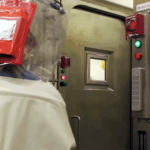


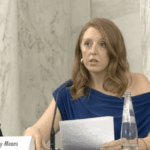





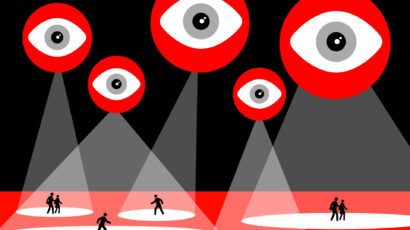
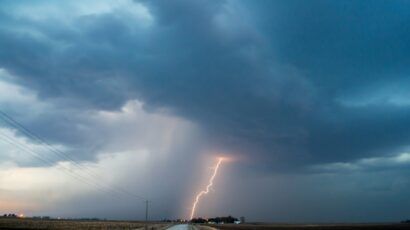
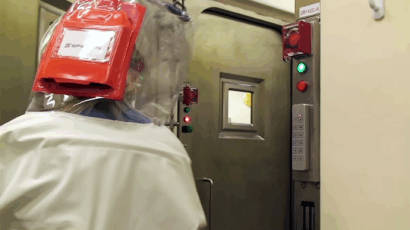
I agree of course. The FDA’s tardiness in making this long overdue & obvious decision is just another example of the sort of precautionary principle-based decision making that’s killed off the chances that nuclear power will address the energy-related issues facing our descendants.